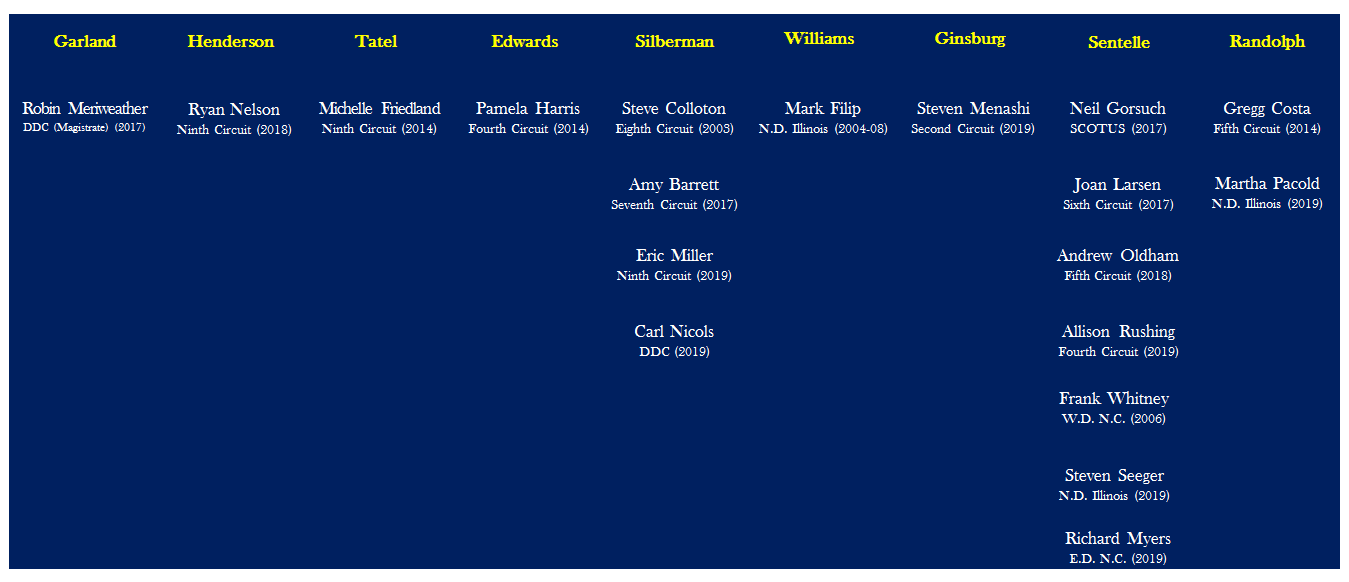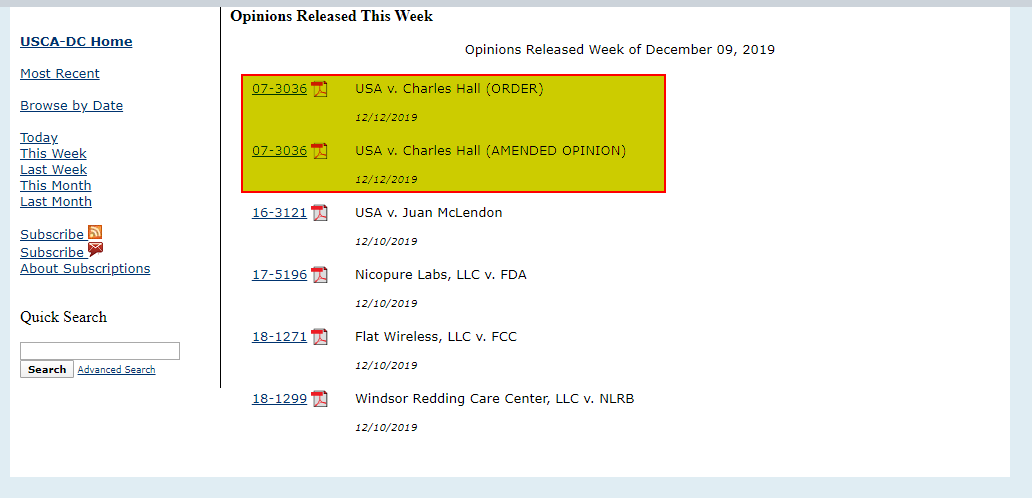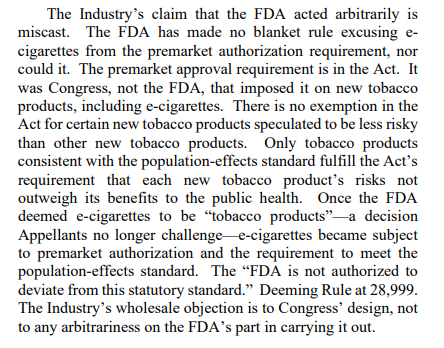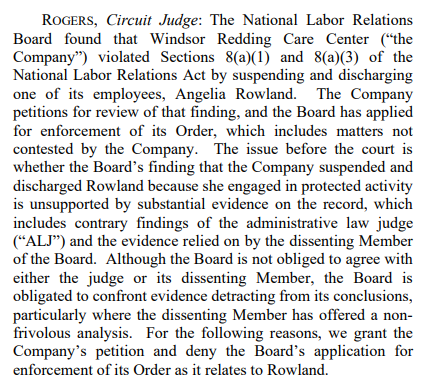D.C. Circuit Review – Reviewed: Clerking Trees
This will be another quick post.
This week the Senate confirmed Lawrence VanDyke to the Ninth Circuit. Last month the Senate confirmed Steve Menashi to the Second Circuit. Last year the Senate confirmed Ryan Nelson to the Ninth Circuit. What do these three judges have in common? All clerked on the D.C. Circuit and are the first clerks for their respective judges (Judge Brown, Judge Ginsburg, and Judge Henderson) to become federal judges themselves.*
In football, commentators often talk about “coaching trees” — “the sprawling web of head coaching relationships.” Coaching trees are thought to matter because coaches presumably learned things, both big and small, from those for whom they worked. I asked the good folks in the BYU Law Library to put together clerking trees for the D.C. Circuit. This is what they came up with:

Candidly, I don’t have any grand thoughts about this chart. As one might expect, it is dominated by the D.C. Circuit’s senior judges — who have both had more clerks and more years for their clerks to become judges. I have no idea, moreover, how strong “clerking trees” really are in practice. It does seem to me, however, that there is probably some connection between how a new judge runs his or her chambers and how the judge for whom that new judge clerked ran his or her chambers.
Again, I don’t have any big thoughts; this is just a blog post. But I think it is interesting.
Speaking of interesting …

What in the world is the D.C. Circuit doing amending an opinion with a case number that begins “07”? Well, again, I asked the BYU Law Library. Here — per an unopposed motion to recall the mandate — is the story. In 2010, the “Court reversed the conviction that forms the basis for the 293-month prison sentence [Hall] is currently serving, but failed to remand for resentencing.” The error has been fixed. Thanks are due Erica Hashimoto — appointed by the Court — and her team at the Georgetown Appellate Litigation Program.
The Court’s other cases are also worth a read. Let’s start with Nicopure Labs, LLC v. FDA. Judge Pillard (joined by Judges Rogers and Sentelle) issued a lengthy opinion about e-cigarettes. Much of the opinion is about the First Amendment but there is a section about the APA:

In Flat Wireless, LLC v. FCC (some of which is under seal) Judge Silberman (joined by Judges Tatel and Griffith), contains this noteworthy footnote:

The moral? Be careful when you ask for reconsideration.
In Windsor Redding Care Center, LLC v. NLRB, Judge Rogers (joined by Judges Henderson and Edwards) opened her opinion this way:

Finally, in United States v. McLendon, Judge Sentelle (joined by Judges Henderson and Katsas) rejected an ineffective assistance challenge based on the Speedy Trial Act. On the subject of Sentelle — wow, check out his clerking tree!
* In the interest of disclosure, though, candidly, I’m not sure if disclosure is even necessary for such a humdrum post, Judge Menashi and I became friends when we clerked together on the D.C. Circuit (Menashi for Judge Ginsburg and me for Judge Brown). Judge Allison Rushing clerked that same year. Judge VanDyke became friends during law school and he clerked for Judge Brown before I did. Judge Nelson is a graduate of Brigham Young University, where I teach, and was recently on the Council of the ABA Administrative Law Section. I first met Judge Nelson at the 2017 D.C. Circuit Conference and we’ve also become friends.
D.C. Circuit Review – Reviewed is designed to help you keep track of the nation’s “second most important court” in just five minutes a week.



